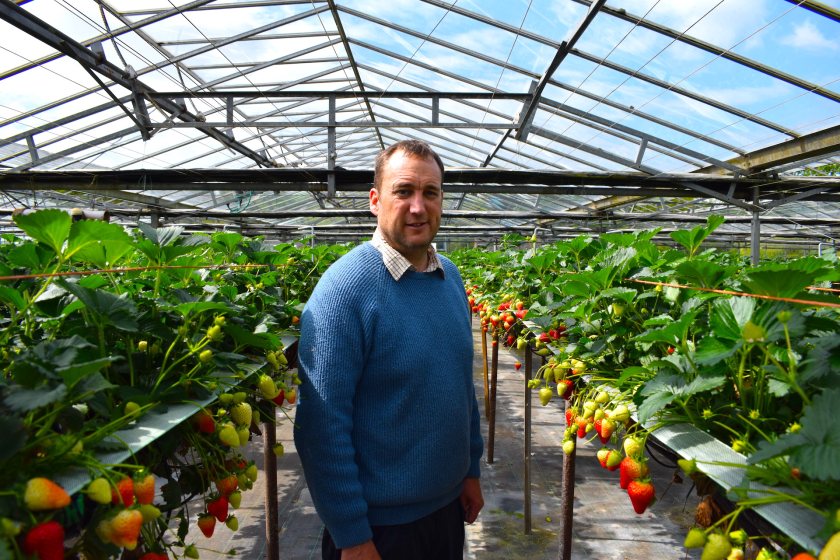
A Hampshire famer has warned that further restrictions on migrant workers coming to the UK could prove devastating for the farming industry.
It comes after the government announced that UK net migration had hit a record high of 606,600 in 2022.
The increase was mainly from people arriving from non-EU countries on government-issued visas to study, work or join family members.
Prime Minister Rishi Sunak has admitted that net migration was "too high", but batted away suggestions it was out of control.
But since Brexit, the number of people who come to the UK and work on farms has fallen, making recruitment far more difficult.
The industry - heavily reliant on migrant labour - warns that it is also suffering as a consequence of the pandemic.
Soaring energy and fertiliser costs have only added to the pressure, which resulted in £60m of fruit and vegetables being wasted in the UK in the first half of 2022 alone.
Graham Collett, who owns a Hampshire farm and Westlands Farm Shop, said that if new restrictions were to be introduced, it could create significant difficulties for farmers.
The international workforce is essential to businesses like Mr Collett's, as they rely on migrant workers to support them during peak times.
“The British workforce is too thin on the ground to cover the sheer number of people needed in the farming and food industry," he explained.
“Brits are not best suited to manual labour because we have not had a labour economy in the UK for several generations now.
"We haven’t raised, educated or trained manual labour workers and so we must rely on migrant workers to help us out."
He added that many British people looked for permanent jobs, and therefore seasonal work was not favoured by them.
"This is another reason why it is so important we must be able to recruit international workers to help us all year round, but particularly during peak times.”
Westlands Farm Shop harvests over 15 tonnes of soft fruit per week during the spring and summer season.
Its farm shop team consists of 18 local people and 25 international workers from countries such as Ukraine and Kyrgyzstan.
Mr Collett continued: “Without international people arriving to work on farms across the UK, the farming and food system would collapse.
"It is critical that people realise this and separate legitimate forms of work from other immigration issues that are happening throughout the country.”
